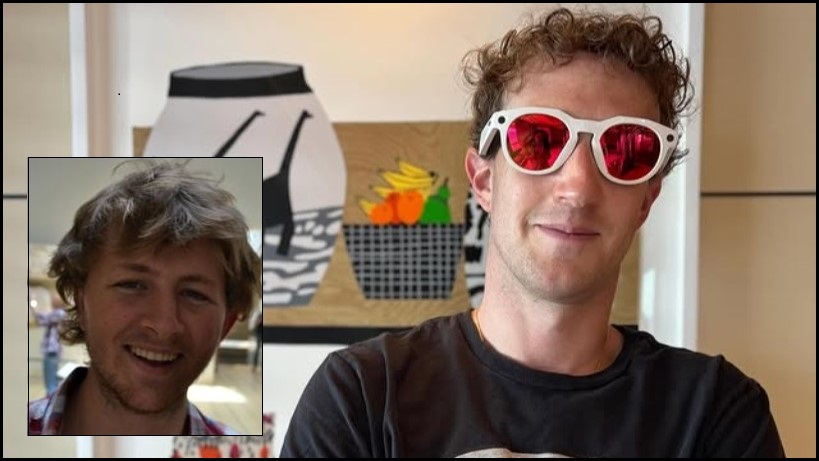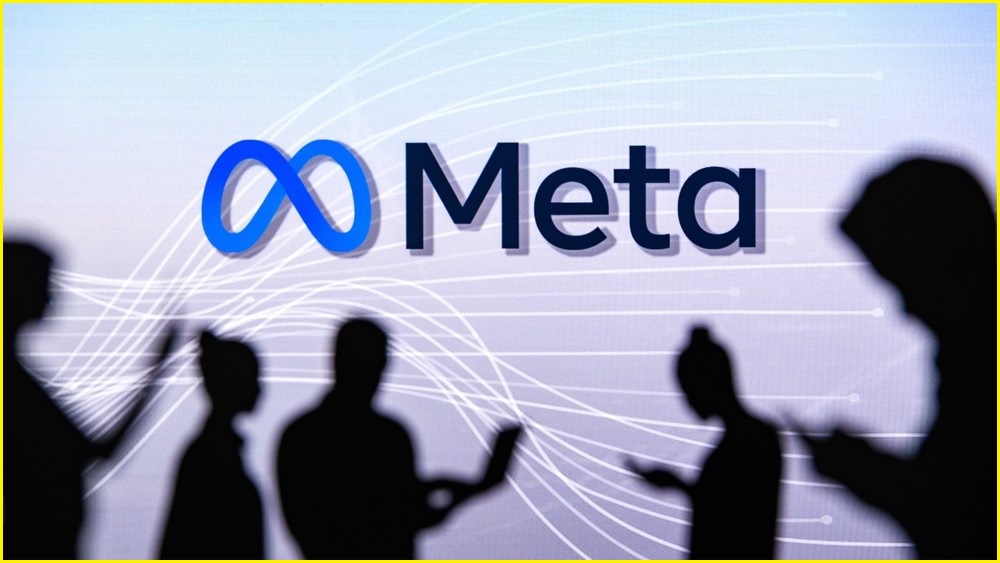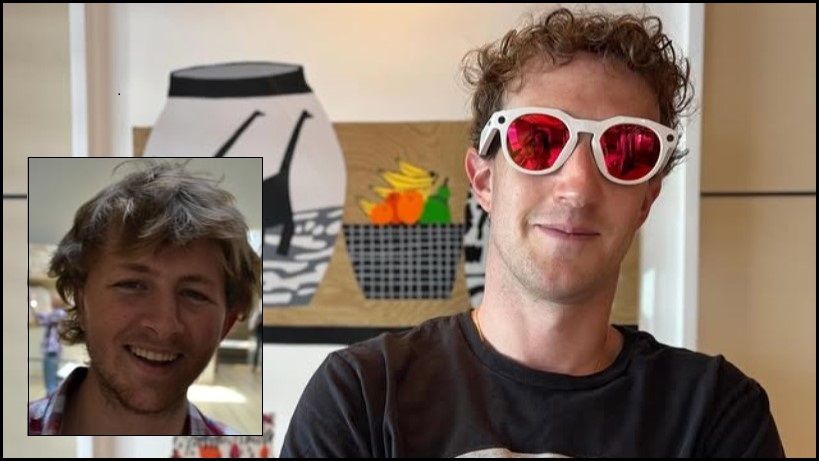
Aussie Andrew Tulloch (inset) turned reportedly down a billion-dollar offer from Meta’s Mark Zuckerberg. Photo: Instagram / LinkedIn
An Australian AI researcher has reportedly turned down a $1.54 billion dollar package from Meta chief executive Mark Zuckerberg.
University of Sydney graduate and Perth native Andrew Tulloch accrued a reputation as a ‘genius’ during a ten-year tenure at Meta, where he initially worked on machine learning for Facebook before eventually securing one of the company’s most technical roles as a “distinguished engineer”.
Tulloch jumped ship to OpenAI in 2023, where he stayed for just over a year before joining the company’s former chief technology officer Mira Murati to form AI research outfit Thinking Machines Lab.
According to Murati, Thinking Machines has attracted at least $3.08 billion (US$2 billion) from investors and was valued at $18.53 billion (US$12 billion) in its first round of funding.
Such investment, however, has also attracted the attention of Zuckerberg, who recently undertook what the Wall Street Journal described as a “full-scale raid” of employee poaching after Murati refused to sell her startup to him.
And Tulloch – now a co-founder and leading researcher at the startup – was Zuckerberg’s “chief target”.
Zuckerberg reportedly presented the Australian engineer with an employment package worth $1.54 billion ($US1 billion).
People familiar with the matter told the Wall Street Journal when bonuses and stock performance were factored in, the package could have been worth more than $2.31 billion (US$1.5 billion) over at least six years.
The mammoth offer was reportedly turned down by Tulloch, while Zuckerberg’s headhunting yielded fully zero hires from Thinking Machines.
Not an unusual offer
In a statement given to Information Age, a Meta spokesperson disputed that Tulloch received an offer which was worth $1.54 billion.
“The description of the offer is inaccurate and ridiculous,” they said.
In 2007, Tulloch graduated Christ Church Grammar in Claremont in Western Australia with an ATAR of 99.95.
In 2011, he went on to achieve first class honours, a university medal in mathematics and the highest GPA in the Faculty of Science at the University of Sydney.
Tulloch later completed a master’s degree in mathematical statistics and machine learning at the UK’s University of Cambridge, while Mike Vernal, a former Facebook executive who worked with Tulloch, told the Wall Street Journal the Australian researcher had become “known as an extreme genius”.
Despite his accolades, Toby Walsh, chief scientist of the University of New South Wales AI Institute and a member of the ACS AI and Ethics committee, told Information Age Tulloch’s reported offer might not be an outlier.
“There are a lot of ‘acqui-hires’ going on at the moment which are worth billions of dollars,” said Walsh.
“In that sense, it’s in line with much of what’s happening in the industry.
“Not to mention, Andrew is a co-founder of Thinking Machines – he could have 10 or 20 per cent equity in the company which he’d have to sacrifice for the offer,” said Walsh.
Walsh emphasised such equity could be “worth billions at this point”, while Zuckerberg’s reported attempt to acquire Thinking Machines could have been worth between US$10 billion and US$20 billion in of itself.

Meta is said to be playing catchup in the AI race. Photo: Shutterstock
On X, Murati said Thinking Machines was “building multimodal AI that works with how you naturally interact with the world” and would share its first product “in the next couple months”.
Notably, Thinking Machines’ website initially listed and linked to online profiles for all 39 of its founding team members, though this section of the website was quietly removed in early July.
Meta playing catchup
Speaking with Wall Street Journal, Meta spokesperson Andy Stone said the company was not interested in acquiring Thinking Machines.
Notably, Meta has poached at least ten of OpenAI’s researchers, while more than 20 OpenAI researchers followed Murati when she launched Thinking Machines in February.
Though Meta only last year boasted having the “most capable” open source large language model in the AI race, Walsh said Meta’s Llama is not “by far the best model anymore”.
“No one seems to have a clear lead on anyone else,” he said.
“If you look at what’s happened so far, there are a dozen or more competitive foundational language models.
“I imagine [Meta] is playing catchup.”
Walsh said OpenAI “seems to have captured the public’s attention” with ChatGPT receiving 2.5 billion prompts a day, while research lab Anthropic’s AI models seemed to be “gaining a lot of the corporate market.”
Zuckerberg, Musk and OpenAI’s chief executive Sam Altman have also maintained competing ambitions to achieve human-level artificial general intelligence – something that would secure a marked lead in the AI industry.
“It makes some financial sense for Zuckerberg to be making these outrageous offers – and they are quite outrageous,” said Walsh.
“In other circumstances, I’m not sure that anyone’s worth a billion dollars for a year’s work, even if they are a genius.”

